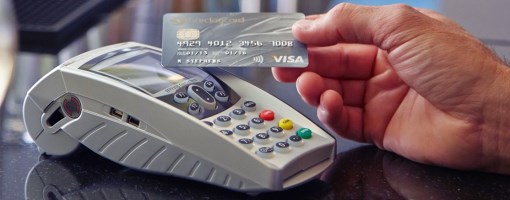A third of buyers have fallen victim to fraud when purchasing goods via second-hand marketplaces over the past two years to January 2024, according to new research.
The new study by consumer champion Which? also reveals that a fifth of sellers have experienced a scam over the same period.
Data from UK Finance shows that purchase scams are the most common type of authorised push payment fraud. According to the trade association, it accounts for 66 per cent of all cases reported to banks, with around £41 million lost to these scams in 2023.
Which? said that its research found that around 15 per cent of buyers received incorrect goods, while the same number reported they had received no goods at all.
Ten per cent of buyers received counterfeit goods, while 11 per cent received an empty package.
Buyers on Depop were most likely to experience a scam, with 57 per cent saying they had fallen victim to one. This compares to 53 per cent of buyers on Shpock and half of users on both Preloved and Nextdoor.
Responding to the research, a spokesperson for Depop told Which? that the safety and trust of its community is a top priority, adding that it has a range of measures to protect users from fraudulent behaviour.
“All transactions on Depop are made through our secure in-app checkout system, designed specifically to keep users safe and transactions secure - and we offer two-factor authentication to provide an extra layer of account security,” they added.
When selling an item, Nextdoor sellers were most likely to say they had encountered potential fraudsters with 39 per cent of those surveyed telling Which? they had experienced a scam in the previous two years. The number fell to 26 per cent for those selling on Preloved and Shpock.
Commenting on the news, a spokesperson for Nextdoor told Which? that the company takes all reports of scam behaviour very seriously and users are encouraged to meet face to face to help guard against fraudulent behaviour.
“Unlike other marketplaces Nextdoor does not process online payments, further limiting the likelihood of fraud,” they said. “We're proud to have helped neighbours in the UK list over 6m local items for sale in their neighbourhoods.”
Preloved and Shpock declined a request by Which? For comment.
Which? Warned that buying goods from private sellers is not as straightforward as it seems and sellers could be in breach of contract if they misrepresent goods or items are not sent when a seller takes money. The consumer champion added that getting money back can be tricky.
While low-value purchases are unlikely to be counterfeit, Which? said that the onus should not be on customers to protect themselves from scammers.
“When buying and selling second-hand goods online, it’s important that people properly check the seller’s reviews and profile - especially if they are on the hunt for expensive goods,” said Rocio Concha, Which? director of policy and advocacy. “However, the responsibility should not fall wholly on consumers to protect themselves from scammers.
“Second-hand marketplaces need to ensure there are proper checks in place to prevent scammers from advertising in the first place and that any scam profiles are quickly removed.”
Latest News
-
Currys to expand AI-powered employee ideas platform
-
Superdrug promotes Simon Comins to COO
-
M&S relaunches rewards scheme following cyber-attack
-
Zalando boosts delivery service in the Baltics
-
Research finds remote access attacks and card testing among top e-commerce fraud risks
-
Auchan to sell 19 stores to Lidl
Supermicro and NVIDIA’s AI Solution for Retailers
To find out more: click here
Poundland significantly reduces antisocial behaviour, aggression and shoplifting with Motorola Solutions VT100 body cameras
Retail should not be a high-risk occupation. As a company, we are focused on listening to our colleagues and customers to help them with the issues they are facing in-store and so far, the feedback on our body cameras has been excellent. They act as a great visual deterrent, help to de-escalate situations and overall, this project has significantly aided our goal to make the retail environment safer.
For further information on Motorola Solutions’ retail security products, including body cameras, click here.
For further information on Motorola Solutions’ retail security products, including body cameras, click here.
© 2024 Perspective Publishing Privacy & Cookies










Recent Stories